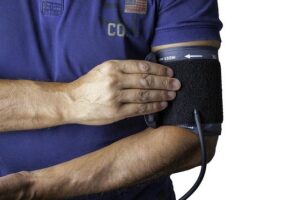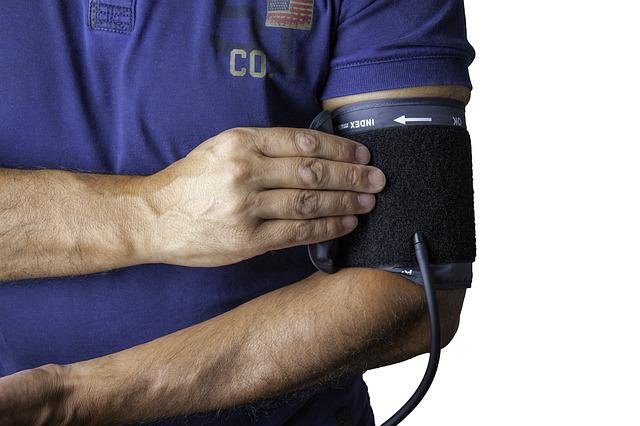
According to the Centers for Disease Control and Prevention, about one out of every three American adults has high blood pressure or hypertension.
Because high blood pressure is so prevalent, it may appear to be little more than a nuisance. However, uncontrolled high blood pressure can lead to serious health problems.
If you have high blood pressure, it is important to take steps to control it. Ignoring your hypertension can lead to life-threatening health problems.
The dangerous side effects of high blood pressure
High blood pressure can also cause other dangerous side effects, including:
Heart attack
The most common indication that your blood pressure is too high is heart discomfort. If you are having a heart attack, the pain may radiate from your chest to your left arm, jaw or neck. You may also experience shortness of breath, sweating, and lightheadedness.
Stroke
A stroke occurs when blood flow to the brain is interrupted. This can lead to brain damage, paralysis or death. High blood pressure is a major risk factor for stroke.
Kidney damage
The kidneys are responsible for filtering waste and excess fluid from the body. When the kidneys are damaged, they can no longer do their job effectively. This can lead to a build-up of toxins in the body and kidney failure.
Erectile dysfunction
Erectile dysfunction is a common problem in men with high blood pressure. The condition is caused by the narrowing of the blood vessels, which reduces the blood flow to the penis. This can make it difficult or impossible to achieve an erection.
Death
High blood pressure is a leading cause of death in the United States. If left untreated, it can lead to heart attack, stroke, kidney failure and death.
There are many dangerous side effects of high blood pressure. If you have hypertension, it is important to take steps to control it. Ignoring your condition can lead to life-threatening health problems.
What is the main cause of high blood pressure?
The main cause of high blood pressure is unknown. However, there are several risk factors that can increase your chances of developing the condition. These include:
- Smoking
- Obesity
- Unhealthy diet
- Physical inactivity
- High stress levels
- Age
- Family history
Causes of sudden high blood pressure
There are several things that can cause a sudden increase in blood pressure. These include:
- Stress
- Anxiety
- Exercise
- Caffeine
- Nicotine
- Certain medications
- Pregnancy
- Sleep apnea
Sudden high blood pressure can be dangerous. If you experience a sudden increase in blood pressure, it is important to seek medical help.
Stages of hypertension
There are four stages of hypertension. Each stage is associated with a different level of risk for health problems.
- Stage one hypertension is defined as a blood pressure of 140/90 or higher. This stage is considered to be mild hypertension and does not yet require treatment.
- Stage two hypertension is a blood pressure of 160/100 or higher. This stage is considered to be moderate hypertension and may require treatment.
- Stage three hypertension is a blood pressure of 180/110 or higher. This stage is considered to be severe hypertension and requires treatment.
- Stage four hypertension is a blood pressure of 200/120 or higher. This stage is considered to be very severe hypertension and requires emergency treatment.
How to reduce the risk of high blood pressure?
There are several things you can do to reduce your risk of high blood pressure, including:
Quit smoking
If you smoke, quitting is the best thing you can do for your health. Smoking increases your risk of developing high blood pressure, heart attack and stroke.
Maintain a healthy weight
If you are overweight or obese, losing weight can help to lower your blood pressure. A healthy diet and regular exercise are the best way to lose weight.
Eat a healthy diet
A healthy diet is important for maintaining healthy blood pressure. Eat plenty of fruits, vegetables, and whole grains. Avoid processed foods, sugary drinks, and unhealthy fats.
Stay active
Physical activity can help to lower your blood pressure. Aim for at least 30 minutes of exercise most days of the week.
Manage stress
High stress levels can contribute to high blood pressure. Learning how to manage stress can help to keep your blood pressure under control.
Age is a major risk factor for high blood pressure. If you are over 60, it is important to get your blood pressure checked regularly.
- Related post: What Will Happen If You Have Too Many Red Blood Cells
- Related post: Physically Happens To a Body Right After Death
What is normal blood pressure by age?
The table below shows the blood pressure ranges for adults of different ages.
Age group Systolic (mmHg) Diastolic (mmHg)
| Age group |
Systolic (mmHg)
|
Diastolic (mmHg) |
| 18-24 | 120-129 | 80-84 |
| 25-34 | 130-139 | 85-89 |
| 35-44 | 140-149 | 90-99 |
| 45-54 | 150-159 | 100-109 |
| 55-64 | 160-169 | 110-119 |
| 65+ | 170+ | 120+ |
Summary
High blood pressure is a condition that may be chronic or acute, and it gradually damages the body. However, blood pressure may suddenly rise to an emergency level and require immediate care, which might necessitate hospitalization.
Chronic high blood pressure (hypertension) is a major risk factor for heart disease, stroke, and kidney disease. The exact cause of hypertension is unknown, but there are several risk factors that can increase your chances of developing the condition. These include smoking, obesity, unhealthy diet, physical inactivity, high stress levels, age, and family history.
You can reduce your risk of hypertension by quitting smoking, maintaining a healthy weight, eating a healthy diet, staying active, and managing stress. If you are over 60, it is important to get your blood pressure checked regularly.



